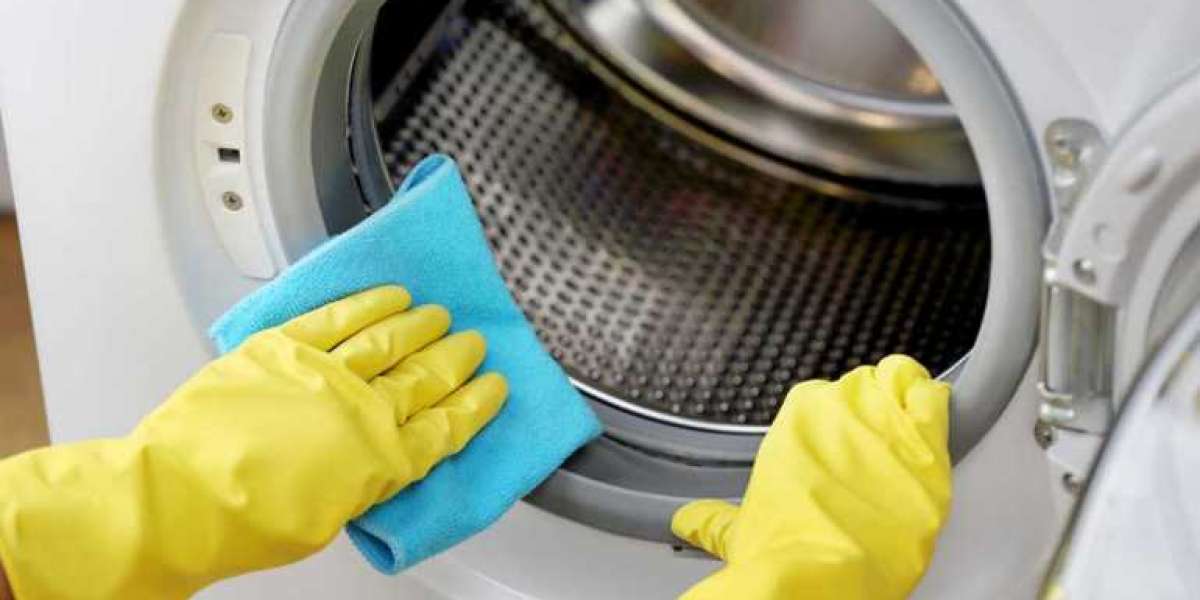Washing machines have become an essential appliance in every household. Whether you own a front-load or top-load model, your washer works hard every week to keep your clothes clean and fresh. But when things go wrong—and they eventually will—you’re faced with a big question: Is it more cost-effective to repair a front-load washer or a top-load washer?
In this guide, we’ll break down the pros and cons of each washer type when it comes to repairs. We’ll look at repair costs, common issues, lifespan, efficiency, and even how repair services like Jp Appliance Repair can help you save time and money.
Understanding the Basics: Front-Load vs. Top-Load Washers
Before diving into repair costs, let’s look at how these two washer types work and what makes them different.
Front-Load Washers:
Design: The door is located at the front, and the drum spins horizontally.
Efficiency: Generally uses less water and energy.
Cleaning Power: Better for large loads and gentler on clothes.
Price: Typically more expensive upfront.
Technology: More complex systems with additional features.
Top-Load Washers:
Design: The door is on top, and the drum rotates vertically.
Efficiency: Uses more water but has a faster wash cycle.
Cleaning Power: Great for smaller loads and quick washes.
Price: Generally more affordable to buy.
Technology: Less complicated internal components.
While front-load washers offer advanced features and energy savings, top-loaders are often praised for their simplicity and ease of use. But how do they compare when it’s time for a repair?
Common Repair Issues: Which Breaks More Often?
Understanding the most frequent problems with each type of washer can give you insight into long-term maintenance and repair costs.
Common Front-Load Washer Problems:
Door Seal Leaks – The rubber gasket on the door often traps moisture, leading to mold or water leaks.
Drainage Issues – Due to their low positioning, drain pumps are more prone to clogging.
Control Panel Malfunctions – With more digital features, front-loaders are more likely to suffer from electronic issues.
Bearing Failure – This is a big one—if the drum bearings wear out, repairs can cost hundreds of dollars.
Common Top-Load Washer Problems:
Agitator Issues – The agitator in the center can break or come loose over time.
Lid Switch Failures – A simple but common problem, usually an easy fix.
Water Inlet Valve Problems – Top-loaders often experience valve clogs or leaks.
Drive Belt Wear – The motor belt may loosen or snap.
While both washer types can experience breakdowns, front-load washers tend to have more costly and complex repairs, especially if the issue involves the drum or electronics.
Repair Costs: What’s More Affordable?
Let’s talk numbers.
Here’s a breakdown of average repair costs for front-load and top-load washers in the U.S.:
| Repair Type | Front-Load Washer | Top-Load Washer |
|---|---|---|
| Door Seal Replacement | $150 – $250 | N/A |
| Drain Pump Replacement | $200 – $400 | $150 – $300 |
| Motor/Belt Replacement | $250 – $500 | $150 – $300 |
| Control Panel Repair | $200 – $450 | $100 – $250 |
| Bearing Replacement | $400 – $700 | Rarely needed |
As you can see, top-load washers are usually cheaper to repair, largely because they’re mechanically simpler. Front-load models not only have higher average repair costs but also more frequent issues related to their design and tech features.
Lifespan and Durability: Which Washer Lasts Longer?
Top-load washers typically last between 10–15 years with basic maintenance.
Front-load washers usually last around 8–12 years, depending on usage and care.
The difference isn’t drastic, but top-loaders tend to have fewer parts that fail, especially if you choose a model with manual controls instead of a digital display.
However, some homeowners are willing to trade off a few years of lifespan for the energy efficiency and better washing performance that front-loaders offer.
Repair or Replace? How to Decide
When your washer breaks down, you’re faced with a critical decision: Should you repair it or replace it?
Here are some helpful tips:
Repair if:
The repair cost is less than 50% of the replacement cost.
Your washer is less than 8 years old.
The machine has been reliable up until now.
You trust a local expert like Jp Appliance Repair for fast, professional service.
Replace if:
The repair cost exceeds $400–$500 and your washer is over 10 years old.
The washer has frequent issues or poor performance.
You want to upgrade to a more efficient or feature-rich model.
Companies like Jp Appliance Repair offer honest diagnostics, so you won’t waste money fixing a machine that’s on its last legs.
Cost-Saving Tip: Preventative Maintenance
No matter what type of washer you own, regular care can extend its life and reduce repair needs.
Here’s what you can do:
For Front-Load Washers:
Clean the door gasket monthly to prevent mold buildup.
Leave the door open after use to let moisture evaporate.
Run a cleaning cycle with vinegar or a washer cleaner once a month.
For Top-Load Washers:
Check the agitator and belts periodically for signs of wear.
Avoid overloading the washer.
Clean the lint trap or filter (if it has one).
Hiring a professional for annual inspections can catch minor issues before they become major headaches—and that’s where Jp Appliance Repair shines. Their technicians can check components, clean internal systems, and help keep your washer running like new.
Energy Efficiency: Do Repairs Impact It?
Yes—especially for front-load washers. If the drum bearings or control board aren’t functioning properly, your washer may run longer cycles, use more water, or fail to spin efficiently. That not only raises your energy bill but also stresses the machine further.
In top-load washers, problems like a faulty inlet valve or broken agitator can reduce efficiency too, but they’re usually cheaper and quicker to fix.
If energy savings is your priority, make sure any repair is done properly by a qualified technician—again, services like Jp Appliance Repair ensure repairs restore full efficiency.
Summary: Which Washer Wins the Cost Battle?
Let’s break it down:
| Category | Front-Load Washer | Top-Load Washer |
|---|---|---|
| Initial Cost | Higher | Lower |
| Repair Cost | Higher | Lower |
| Complexity | More complex | Simpler |
| Common Issues | Drain pump, gasket, bearings | Lid switch, agitator, belt |
| Lifespan | 8–12 years | 10–15 years |
| Efficiency | Better energy use | Uses more water |
| Repair Frequency | More frequent | Less frequent |
If you're looking purely at repair costs, top-load washers are more cost-effective in the long run. Their parts are cheaper, easier to replace, and they break down less often.
However, if you prefer quieter operation, better cleaning, and energy efficiency, a front-load washer may still be worth the investment—as long as you’re prepared for potentially higher repair bills.
Why Choose Jp Appliance Repair?
Whether you own a front-load or top-load washer, having a trusted repair partner can save you hundreds of dollars over the life of your appliance.
Jp Appliance Repair is known for:
Fast, reliable diagnostics
Affordable repair rates
Honest advice on whether to repair or replace
Highly skilled technicians familiar with all major brands
They understand the unique challenges of both washer types and can help you make the most cost-effective decision for your home.
Final Thoughts
Both front-load and top-load washers have their advantages—but when it comes to repairs, top-load washers are usually the more budget-friendly choice. Still, with proper care, either type can last for years. The key is staying on top of maintenance and working with a professional team like Jp Appliance Repair to fix issues early.
So, the next time your washer starts acting up, don’t panic. Get a quote, weigh your options, and make the smart choice for your home and wallet.
FAQs
1. Is it worth repairing a 10-year-old washer?
It depends on the repair cost and the washer’s performance history. If repairs are over $400 and the unit is older than 10 years, replacement may be a better investment.
2. Do front-load washers really have more problems?
Yes, they often require more maintenance and have higher repair costs due to their complex design and digital features.
3. How can Jp Appliance Repair help me save on washer repairs?
Jp Appliance Repair offers affordable diagnostics, honest repair advice, and skilled technicians who can extend the life of your washer—saving you from expensive replacements.








